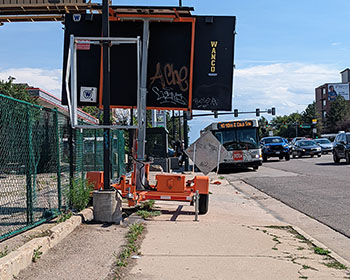MPC Research Reports
Report Details
Abstract
 The transportation experiences of people with disabilities have improved since the passing of the Americans with Disabilities Act (ADA) in 1990. Despite progress, many aspects of the current transportation system still limit people with disabilities from traveling safely and efficiently. Moreover, transportation planning and design efforts consistently lack representation of people with disabilities.
The transportation experiences of people with disabilities have improved since the passing of the Americans with Disabilities Act (ADA) in 1990. Despite progress, many aspects of the current transportation system still limit people with disabilities from traveling safely and efficiently. Moreover, transportation planning and design efforts consistently lack representation of people with disabilities.
This research seeks to address this disconnect via semi-structured interviews with 37 stakeholders. Among those, 28 are people with disabilities or are caretakers/advocates and nine are government officials whose work intersects with the supply of infrastructure regulated under the ADA. One objective is to understand how attributes of transportation infrastructure impact the daily mobility of people with disabilities. A second is to understand how the implementation and management of transportation assets impact the accessibility of travel for people with disabilities.
Through a thematic and content analysis of interview data, we reveal hard infrastructure issues, such as intersection design and programming/management issues, such as communication of transit service changes that impact the daily travel experiences of people with disabilities. Further, government officials demonstrated how supply and implementation challenges, including funding and maintenance, affect the condition of transportation assets. Stakeholders from both cohorts expressed the need for more inclusion of people with disabilities’ lived experiences to inform transportation decisions. Together, these challenges diminish the quality of mobility options and quality of life and are discriminatory by preventing equal access for people with disabilities. These challenges demonstrate that even with minimum design requirements set by ADA for the public right-of-way, barriers still exist within the built environment and within agencies responsible for managing transportation assets. In order to remove these barriers and create a more accessible transportation environment, planners, policymakers, and engineers must collaborate with people with disabilities to consider how the design of transportation systems can be improved to support accessibility for all.
How to Cite
Wagner, Molly, Manish Shirgaokar, and Wesley Marshall. Learning from the Travel Experiences of Persons with Disabilities: Investigating Navigation Challenges Posed by Infrastructure, MPC-24-515. North Dakota State University - Upper Great Plains Transportation Institute, Fargo: Mountain-Plains Consortium, 2024.

